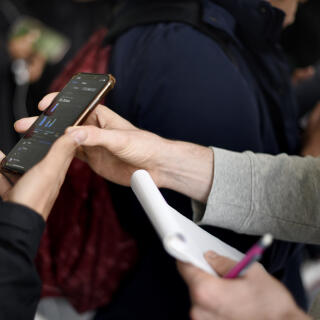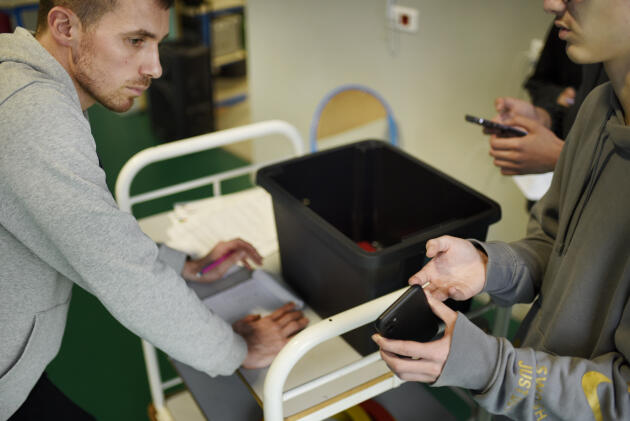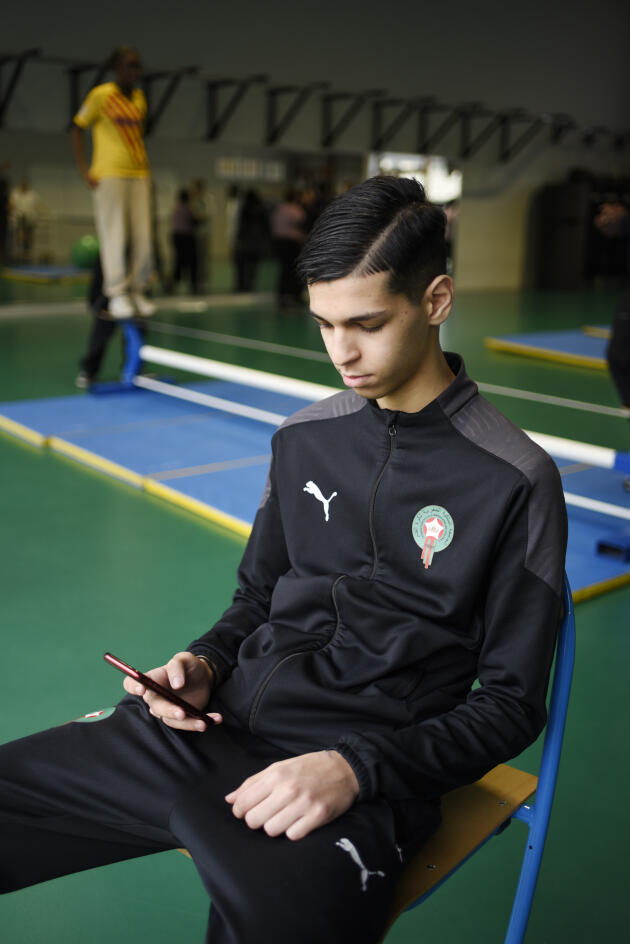


The high schoolers trying to cut screen time: 'TikTok is like smoking. We'd like to stop, but we can't.'
FeatureTwo PE teachers at a high school outside Paris are tracking the time spent by their 15 and 16-year-old students on their phones, to encourage them to 'do something else with their free time.' At the start of the school year, their average daily use was 7 hours and 22 minutes.

The ritual has become fixed. Every week, Erwan Chapelière and his colleague Cécile Gauthière record the screen time of the students in their class. The two PE teachers from the Jacques-Feyder high school in Epinay-sur-Seine (north of Paris) set up a box on a cart and stand at the entrance to the room. Students take it in turns to show their phones, which are marked with their average screen time, then turn them off and put them in the box for the duration of the class.
Some people try to get round this peculiar roll call: "It's broken," "It's out of battery," "I forgot it" etc. But this particular day, Chapelière, pencil and notebook in hand, remained implacable. He ticked off the times and commented: "4 hours and 24 minutes. You've gone down, that's good." "6 hours and 59 minutes. You've got to make an effort." "7 hours and 15 minutes. Yassine, you're slacking off. Did you reinstall TikTok? You're staying until 7 pm today."
The students know what's at stake. At the start of the new school year, Chapelière explained the project he has been running for the past three years to these high school students and their families. "After the lockdown, in 2020, I saw my students coming back overweight and with new habits. Some had trouble letting go of their phones during class. I decided to do something for their health and their education," said the teacher.
'I use it so much'
He drew up some strict rules: under four hours a day on average on the phone, no consequences. Between four and six hours, students would have to come to school for an extra hour a week, to take part in a sporting activity or do their homework. Between six and eight hours, it would be two hours, and beyond eight hours, three extra hours. When he created the program, the teacher felt a little alone in the face of "this scourge."

President Emmanuel Macron has set up a commission on young people's exposure to screens, which is due to deliver its conclusions this spring. The death of a teenager in Viry-Châtillon (south of Paris) and the attack on a schoolgirl in Montpellier (southern France) in early April have also raised the question of the influence of social media on violence between young people. Minister of Young People and Education Nicole Belloubet is calling for a total digital break in middle schools, where cellphones are already banned but students keep their devices with them.
On a Monday afternoon in March, between balancing workshops on a rola-bola, a wire or a ball in this PE class dedicated to circus skills, the teenagers talked about their relationship with their phones, omnipresent in their lives. The punch bags at the back of the room served as a reminder that the 24 pupils in this class take a three-hour boxing option every week. This interest in sports hasn't prevented the students from being highly dependent on their smartphones.
You have 67.14% of this article left to read. The rest is for subscribers only.
